
South Africa's agriculture sector has shown remarkable resilience in spite of disruptions in both the global and the domestic market and input environments.
Although the industry had to deal with a combination of challenges, most sub-sectors in the agricultural and 0 industries showed extreme resilience, according to the Bureau for Food and Agricultural Policy's (BFAP) baseline Agricultural Outlook 2023/32. The positive trends are mainly spillovers from the momentum in the grain and oilseed sectors over the past three years, BFAP stated in the report.
The past three years have been among the most volatile to date in global grain and oilseed markets. The FAO Food Price Index serves as a measure of underlying agricultural commodity prices globally, and in 2022 reached unprecedented levels as Russia's invasion of Ukraine added uncertainty at a time when supply was already constrained.
While global stock levels have been trending downwards amid poor weather conditions, the past three years have been among the best on record in South Africa's summer crop sector, due to the rare combination of large domestic crops and high prices, which emanated from international dynamics.
Lately global prices have, however, moved into a declining cycle and this is expected to spill over into South African markets. This, according to the BFAP report, implies that margins will become tighter over the next few years, requiring continuous innovation to remain on top of the productivity curve.
At the same time, the cost of agricultural inputs remain elevated resulting in reduced producer margins.
Added to the El Niño predictions of drier and hotter spells over the coming production season, the energy crisis in particular will provide significant challenges across the value chain, which constrains competitiveness in the sector and has added significantly to capital and operational expenditure.
This story is from the {{IssueName}} edition of {{MagazineName}}.
Start your 7-day Magzter GOLD free trial to access thousands of curated premium stories, and 9,000+ magazines and newspapers.
Already a subscriber ? Sign In
This story is from the {{IssueName}} edition of {{MagazineName}}.
Start your 7-day Magzter GOLD free trial to access thousands of curated premium stories, and 9,000+ magazines and newspapers.
Already a subscriber? Sign In

Agripreneur wins top award for butternut coffee
Bloemfontein-based agripreneur Chantelle de Bruyn has achieved global recognition.
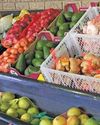
Final fresh produce inquiry pins low level of transformation on farming environment
The Competition Commission released its final report on the Fresh Produce Market Inquiry in mid-January, maintaining that transformation in the industry was being impeded by a lack of support for emerging farmers.

Illegal fishing in Australia reveals market gap for farmed sea cucumber
Illegal fishing practices in Australia have revealed a large market opportunity for sea cucumber farming.

An introduction to the Ford Ranger Tremor
In December 2024, the CAR magazine team received the Ford Ranger Tremor to accompany them through the festive season and into the new year. Oliver Keohane looks at what the Tremor is all about.
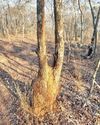
A farmer's experience with bush encroachment
Farmer David Addenbrooke has worked in the Zimbabwean beef industry for around four decades. Here, he relates his experience with bush encroachment and offers farmers some advice on battling this scourge.
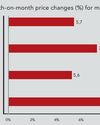
Good rains boost SA's summer grain crop prospects
This week, Absa AgriBusiness analyses several market dynamics and shares its expectations for local grain and oilseed prices over the coming months.
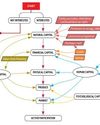
A self-help tool for getting young people engaged in agriculture
The active engagement of the youth in agriculture is pivotal to the sustainability and growth of the sector. Empowering them with the necessary support is key to nurturing future farmers who are equipped to overcome future challenges like the effects of climate change.Dr Primrose Madende, researcher at the Department of Agricultural Economics at the University of the Free State
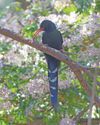
Rallying to the cackle of this raucous bird
The gregarious and territorial Green Wood-hoopoe, also known as the Red-billed Wood-hoopoe, is extremely vocal and is often heard before it is seen. And for very good reason,

SA coffee lovers can expect price increase
South African coffee prices are expected to spike sharply in the foreseeable future because of failed crops in the country’s main importing countries: Brazil and Vietnam.
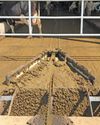
Paving the way for a greener dairy industry
The dairy industry is often criticised for its environmental impact, but a new innovation called DESTiny aims to empower farmers to take control of their carbon footprints. Riana Reinecke, the tool's developer, explained to Glenneis Kriel how it works and how farmers can benefit from it.